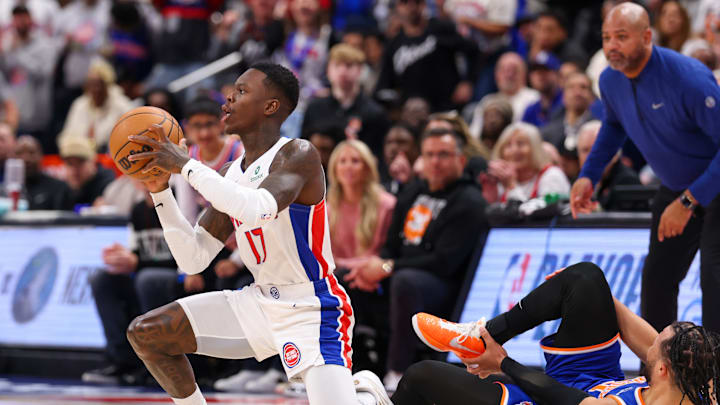Tuesday’s trade between the Boston Celtics and Utah Jazz may be one of the most mundane in NBA history. Boston sent Georges Niang and two second-round picks to Utah in exchange for undrafted rookie RJ Luis Jr. Neither of the players involved in the trade will likely play any meaningful minutes for their new respective teams next season, but the trade is important from a financial and asset management perspective and the Pistons should take note.
Like Utah, the Pistons have a big trade exception at their disposal, but the two teams are in much different positions and Detroit can't waste their TPE on a salary dump.
The Detroit Pistons can't waste their trade exception
Utah fits Niang into their $26 million trade exception that they received when John Collins was sent to the Clippers. Niang’s salary of $8.2 million is far from the entire trade exception, but this is a good representation of how trade exceptions are typically used by NBA teams. They can be helpful in salary dumps and teams can reap the benefits of any draft capital or young players that another team is willing to part ways with in order to get rid of a bad contract.
The Pistons also have a notable trade exception for this season - $14.3 million from Dennis Schroeder signing with the Kings. Fans have been hoping to see that exception used to address some of the remaining weak points in the Pistons’ roster, especially backup point guard and backup power forward, but it has remained untouched so far.
It would not be surprising to see the trade exception untouched until closer to the trade deadline, but Pistons fans’ biggest nightmare would be seeing it used for a simple salary dump or exchange of second-round picks.
The young core is ready to take the next leap after making the playoffs last year, and the exception can be better used to add talent for next season’s playoff push or even establish a better solution long-term at some pressing positions. The Pistons have flexibility, but it's only a word unless they eventually use it to upgrade the roster.
We’ve covered the options that the Pistons have on the market for point guards and power forwards who fit into this trade exception before. Hopefully they will go with one of those options rather than taking on a bad contract for an asset that won’t pay off until a few years down the road.
The Pistons' TPE is big enough to add an impact player, but could also be part of a big trade for a star, which makes it an asset they can't waste.
